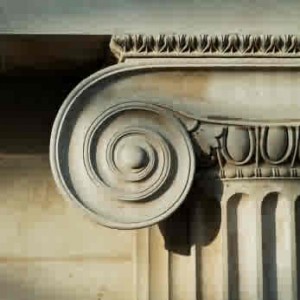From time to time I am asked what colleges I think make for a good fit for classically-educated students. With my second child in college and my first already graduated, naturally I have thought about this a bit. In my work with the Society for Classical Learning, I have also been working with my colleagues to partner with colleges around the nation.
The truth is that classically-educated high school graduates are going to a wide variety of colleges, both Christian and secular. In my experience, these students are competitive and often gain entry into selective colleges, and often receive scholarships. The word is out among many colleges that classical students are generally great students, well-prepared for high-level college work. I know from talking to professors firsthand how this seems to have worked: about ten years ago various colleges began to notice that classically-educated students were excelling at college. K-12 schools (and homeschools) from which these students came where identified as small but rich sources of great students. The colleges then began to recruit directly at many of these schools. Happy students at college began to encourage their friends (still in high school) to apply. More classical students began to flow into some of these colleges (like Grove City College here in PA).
Some of these colleges began to create programs especially for classically-educated students (like Hillsdale College and Grove City College). Some colleges began to emphasize programs already established that appeal to classical students (like the Torrey Institute at Biola College, Great Texts Program at Baylor University and the Jerusalem & Athens Forum at Gordon College). Some colleges have started graduate programs designed to equip students to teach at classical schools like New Saint Andrews College and Houston Baptist University.
Then there are those colleges that have traditionally already had aim at classical students (some new some older): The University of Dallas (Catholic), St. Johns College (secular), Thomas Aquinas College (Catholic), Patrick Henry College (Christian), New Saint Andrews College (Christian). Traditionally academic Christian colleges like Wheaton College and Calvin College have also begun taking notice of classical students, and attracted them. Calvin philosophy professor James K. A. Smith (author of Desiring the Kingdom) has been influential to leaders in the classical Christian education renewal, and become an advocate for it. The Wheaton College graduate school dean (and professor of New Testament) Nicholas Perrin is also an advocate of the renewal and indeed helped found a classical school close to Wheaton (Covenant Classical School).
Other Christian colleges are also taking note of classical students. Messiah College and Eastern College have attracted classical students, and professors in both colleges have expressed interest in recruiting more. The same could be said for many other Christian colleges such as Covenant College, Geneva College, LeTourneau University, The Kings College and Belmont College, and several others.
Classical students are also going to secular colleges, most often the smaller liberal arts colleges, but also larger state universities and then often in honors programs. Yes, there are some classical students who have gone to Harvard, Princeton, Penn, Stanford, MIT and the like, but these schools are statistically extremely hard to get into, even by those qualified (a perfect SAT score doesn’t mean you will gain admission). Students are also going to established liberal arts colleges such as Middlebury College, Grinnell College, Furman University and Davidson College. Regionally it is not uncommon for classical students to gain admission to the larger state universities such as the University of Virginia, Penn State or the University of Michigan.
All in all, classical students are getting into very good colleges, and are sought-after by colleges that recognize the excellent education they have received.
So what do I recommend? I think that the college should fit the student and the student should fit the college. Some students are ready for the experience of a secular college, others are not. Some will thrive at a larger state university, but many classical students will want the smaller classes and discussion format more frequently offered at small liberal arts colleges, Christian or secular. Classical students going to a large university will likely enjoy honors programs or finding more dynamic interaction among students and professors in their major. Christian classical students will want to find fellowship in a Christian group. There is wisdom in the notion that students must seek out the education they want at any college and not expect it will just come to them. We should also note that factors such as proximity and cost are important factors when selecting a college.
Still, I have a list of favorites, based on my limited experience and knowledge. This list is therefore short and no doubt leaves out many excellent colleges. Feel free to post your own favorites and list the reasons–I may then revise my list based on your feedback! For a larger list of colleges that classical students are attending, see the list provided by the Association of Classical Christian Schools (ACCS) here: List of colleges ACCS students attend
Christian Colleges
- Grove City College: Very friendly to classical students, and actively recruiting them. GCC has developed a classical studies minor that deepens classical learning and prepares students to teach in classical schools. Disclaimer: my daughter Zoe graduated from GCC.
- Biola University: The Torrey Institute at Biola has been a great fit for many classical students and has sent many graduates into classical schools as teachers.
- New Saint Andrews College: A small, dynamic and classical college in Moscow, Idaho. Their oral Latin program is notable and unusual. One “major” for all students.
- Baylor University: The Great Texts Program has done the same thing for classical students as has the Torrey Institute at Biola.
- Patrick Henry College: A small college in Northern Virgina (very beautiful setting) that is classical in orientation, and offers remarkable internships in Washington, D.C.
- Gordon College: The Jerusalem & Athens Forum is excellent, so is the Gordon in Orvieto Program.
- Houston Baptist University: This college is rapidly growing to serve classical students and has been recruiting great professors to the campus (e.g. Louis Markos, John Mark Reynolds).
- Wheaton College: Traditionally known for great academics, well-suited for classical students.
- Calvin College: Very much like Wheaton, with a growing appreciation for classical students.
- Messiah College: A warm, communal atmosphere with dedicated professors who love teaching. The philosophy and English departments are particularly welcoming and strong.
- Eastern College: Another warm campus (blue jeans atmosphere). The honors program has attracted classical students.
- Covenant College: A strong academic college in the reformed tradition.
- University of Dallas: A robust Catholic college that with a strong humanities emphasis.
- Ave Maria College: Located in Florida, this is a relatively new Catholic college that is traditional, pious and classical.
Secular Colleges
- Hillsdale College: A conservative liberal arts college in Michigan, friendly to the Judeo-Christian tradition in the U.S. It also features a program for training classical educators.
- St. Johns College: The third oldest college in the country, this is a “great books” school with a common curriculum and small classes. There is a campus in Annapolis, MD and Santa Fe, NM.
- University of Virginia: Strong classical department; many classical students have gained admission to UVA.
- University of Texas: I believe UT hosts the larges classics department in the world. A fine choice for students wanting to pursue a classics major.
- Furman University: Many classical students enjoy this school and recommend it to others.










How about Xavier University’s Honors B.A. Program? (Cincinnati, Ohio Xavier, that is…)
Hello,
Thanks for the great information.
My daughter is classically homeschooled. Which small classical college would work best for her in your opinion?
She also prefers secular college.
I would also add Mount st Mary’s in Emmitsburg, MD.
Always look into Hillsdale. My favorite college in the US! Great classical education, nonsectarian but almost all students are religious, v. conservative, all around prepares you for the future!
She is African American. She also wants diversity if possible.
Arizona State University offers a program in the classical model. School of Civic Economic Thought and Leadership. My son is completing a degree there.
Just a quick note: St. John’s College is not secular, it is Catholic…
Paulette, you might be thinking of St. Johns University in New York, which is Catholic. St. Johns College (in MD and NM) is secular. I attended the Graduate Institute of St. Johns College. Pax, CP
Curious absence of Catholic colleges which foster and teach classical education (of which there are many).
I’m curious- is there a reason why you have not placed any Catholic colleges on your list? There are many which continue the great Classical tradition of learning and are excellent places for classically-educated high schoolers to continue their education.
Susanna,
Thanks for this prompt. When I wrote this post several years ago, I was less informed. I should have listed Thomas Aquinas College then, because I had heard numerous good reports about it from classical educators. Now, I think we could add at least: Ave Maria College (FL), Thomas More College (NH), Wyoming Catholic, and University of Dallas. What colleges would you add?
Bethlehem College & Seminary (intentionally-small, classical, accredited, 2-4 year programs) in downtown Minneapolis, Minnesota.
I have been researching colleges for a master’s degree in classical education and was wondering if you had looked into Knox Theological Seminary. It looks pretty good for the Master’s, but I was surprised you didn’t have it on your list.
Helen, I noticed you wrote this almost 3 years ago now. Did you attend Knox, and if so, how was the program?
I went to Geneva College in western PA & feel like it might also be a fit for classical students. It is a Reformed Presbyterian college.
Charis Bible College in Woodland Park, Colorado!